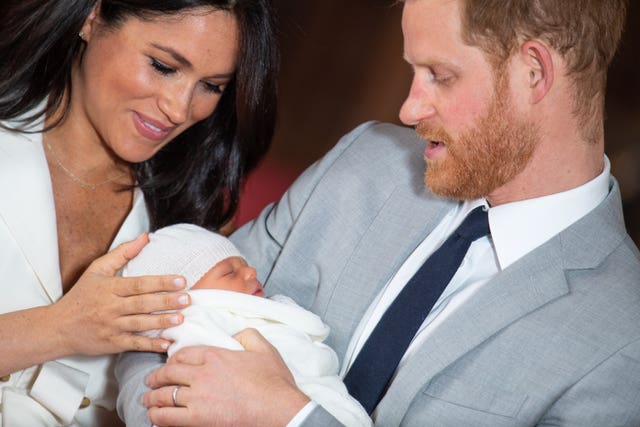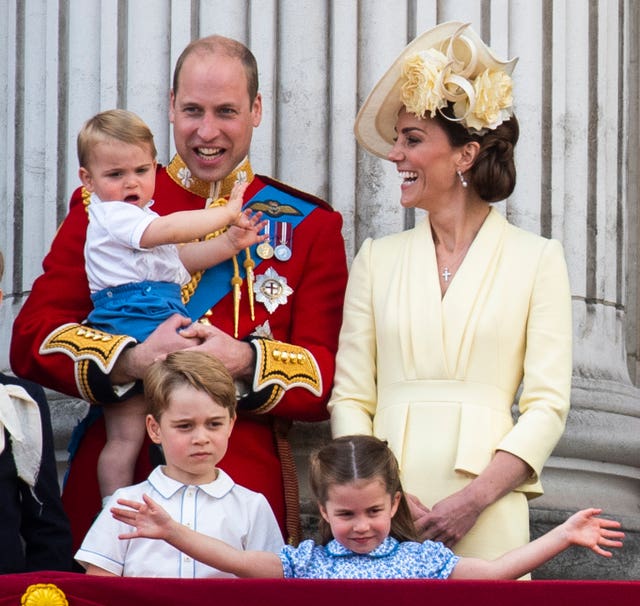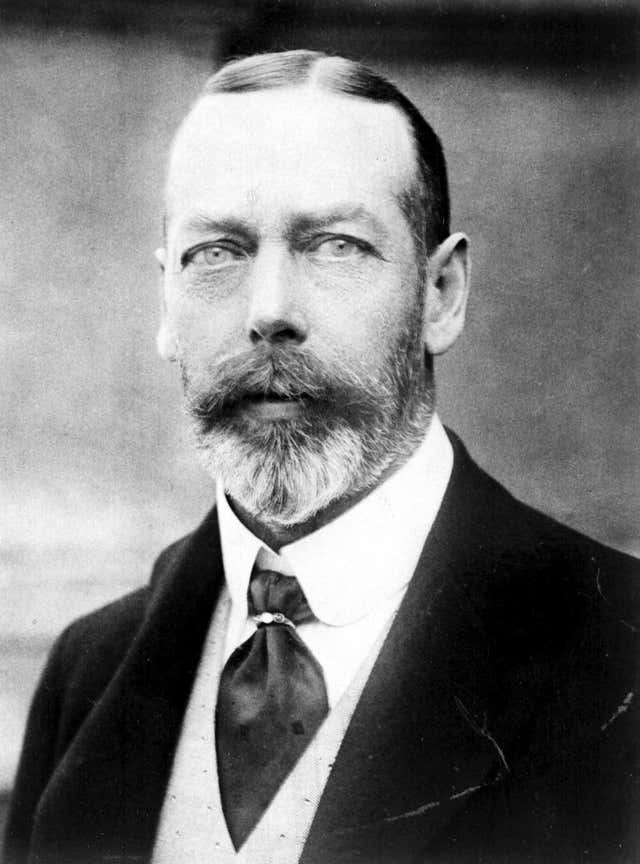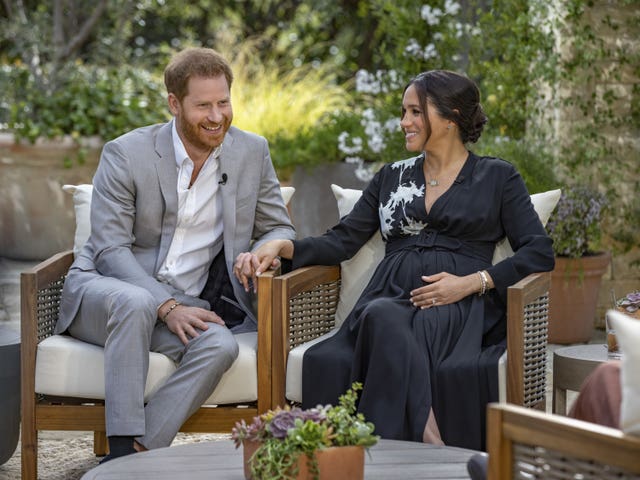
The Duchess of Sussex has suggested it was her son Archie Mountbatten-Windsor’s “birthright” to be a prince and the decision not to give him a title went against convention.
She expressed her shock at being told he would not get security and the idea of him “not being safe”, and said she wanted him to have the title so he could have police protection.
Meghan also suggested that the decision was taken because of Archie’s race.

The duchess shared her upset at the “idea of the first member of colour in this family, not being titled in the same way that other grandchildren would be”.
“It’s not their right to take it away,” she added.
Oprah Winfrey asked in the televised tell-all: “Do you think it’s because of his race? I know that’s a loaded question.”
Meghan replied: “In those months when I was pregnant, all around this same time, so we (had) the conversation of he won’t be given security, he’s not going to be given a title.
“And also concerns and conversations about how dark his skin might be when he’s born.”

But Archie was not entitled to be a prince because of rules set down by King George V more than 100 years ago.
And being a prince or princess does not automatically mean royals have police protection.
Princess Beatrice and Princess Eugenie’s security is no longer paid for by the taxpayer.
Because of the Queen’s long reign and extended family – her great-grandchildren – Archie is too far removed from the throne to be a prince.
But he will be entitled to be an HRH or a prince when the Prince of Wales accedes to the throne.
Harry’s great-great-grandfather, George V, issued a Letters Patent in 1917.

It read: “…the grandchildren of the sons of any such sovereign in the direct male line (save only the eldest living son of the eldest son of the Prince of Wales) shall have and enjoy in all occasions the style and title enjoyed by the children of dukes of these our realms.”
Only Prince George – as a great-grandson of the monarch down the direct line of succession to the throne – was originally entitled to be a prince.
He is the eldest son of the eldest son of the Prince of Wales.
The Queen stepped in ahead of George’s birth to issue a Letters Patent to ensure all the Cambridges’ children would have fitting titles.
Princess Charlotte would have been a Lady and Prince Louis a Lord had the Queen not intervened, and they would have not been HRHs.
But they are the children of a future monarch, whereas Archie is not, and he will move down the line of succession if the Cambridge children have their own families.

Other title options were open to Harry and Meghan.
As the first-born son of a duke, Archie could have become Earl of Dumbarton – one of Harry’s subsidiary titles – or Lord Archie Mountbatten-Windsor.
Eventually Archie will also be entitled to succeed Harry as the Duke of Sussex.
At the time of his birth, a royal source said Harry and Meghan had decided he should be a regular Master Archie Mountbatten-Windsor.
Harry has always stressed the importance of wanting to be seen as normal, and he was thought to have wanted to give his baby the opportunities of an ordinary life that he never had, without the burden of being a prince.
But Meghan said this was not correct, adding: “It was not our decision to make.”
She said titles can lead to “from my experience, a lot of pain”.
But added: “I wouldn’t wish pain on my child but that is their birthright to then make a choice about.”
Asked if Archie being a prince was important to her, she replied: “If it meant he was going to be safe then of course.”
She said she was not interested in the grandeur and she had been a waitress, an actress, a princess, a duchess, but added “I’ve always just told them Meghan.”
“The most important title I will ever have is Mom,” she added.


Why are you making commenting on The National only available to subscribers?
We know there are thousands of National readers who want to debate, argue and go back and forth in the comments section of our stories. We’ve got the most informed readers in Scotland, asking each other the big questions about the future of our country.
Unfortunately, though, these important debates are being spoiled by a vocal minority of trolls who aren’t really interested in the issues, try to derail the conversations, register under fake names, and post vile abuse.
So that’s why we’ve decided to make the ability to comment only available to our paying subscribers. That way, all the trolls who post abuse on our website will have to pay if they want to join the debate – and risk a permanent ban from the account that they subscribe with.
The conversation will go back to what it should be about – people who care passionately about the issues, but disagree constructively on what we should do about them. Let’s get that debate started!
Callum Baird, Editor of The National
Comments: Our rules
We want our comments to be a lively and valuable part of our community - a place where readers can debate and engage with the most important local issues. The ability to comment on our stories is a privilege, not a right, however, and that privilege may be withdrawn if it is abused or misused.
Please report any comments that break our rules.
Read the rules hereLast Updated:
Report this comment Cancel